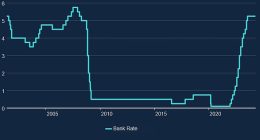
Inc.com columnist Alison Green answers questions about workplace and management issues–everything from how to deal with a micromanaging boss to how to talk to someone on your team about body odor.
A reader asks:
I’m at the management level in a medium-sized company. For the most part, things have been going smoothly. I do a lot of one-on-one coaching, and it usually goes without incident. I have a private, casual chat once something minor has happened two or three times — enough for me to know it’s not a one-off, but not so frequently it’s habit yet.
However, more and more, when I try to give feedback, a couple specific people reply with, “You never told me! Why didn’t you tell me this sooner?”
This is me telling them! Literally the entire point of the conversation is to tell them the feedback and help them resolve whatever the challenge is. If I corrected every minor mistake the very first time it happened, morale would plummet and they would hate their jobs. Nobody wants that!
There’s no reason for people to fear my feedback. We don’t “discipline” people who mess up, and I typically don’t even care the mistake happened beyond my responsibility for quality control. I’ve tried different formats for the feedback, like email, instant messenger, and in person, but it hasn’t changed the response.
I don’t know where these defensive replies are coming from or why they are trying to turn the conversation around on me. It’s emotionally exhausting though, and I don’t want my team members freaking out every time I tell them something minor they need to improve upon. I need to be able to give feedback without the drama. Please help!
Green responds:
Yeah, that’s odd. In many cases, it’s better management to wait to make sure that something isn’t just a one-off before correcting someone — because otherwise, as you point out, you’d be coming down on people too often and when it wasn’t needed. Good managers assume people are human and won’t perform at 100% every moment of the day, and it often does make sense to wait and see if correction is really needed.
Is something else going on that could explain the reaction you’re getting? It doesn’t sound like your employees have reason to fear severe consequences if they mess things up, but is there a pattern of them not having heard feedback promptly in the past (maybe from a previous manager if you haven’t been in the role very long)? Were there serious business consequences from the mistake, which would make it the sort of thing you should talk about right away rather than waiting to see if it’s repeated? Are the mistakes the type where getting it wrong once indicates that the person has a misunderstanding of a policy or procedure that will almost certainly be repeated if it’s not corrected now? Are the people giving you this feedback the overly-conscientious type who panic if they feel they’ve done something less than perfectly?
If you can’t figure out where it’s coming from, I’d just ask people directly. The next time it happens, say something like: “Often, minor bumps get fixed on their own or never recur, and I trust and respect you enough that I want to give you some leeway to figure things out on your own and not feel jumped on every time something minor happens. If I notice it a few times, that’s when I feel it’s worth us talking and getting aligned, which is what I’m doing now. Does that make sense to you? If not, tell me more about how you see this.”
And then hear the person out. Maybe you’ll hear something that does shift your perspective. But if not, you can say, “I hear what you’re saying and I appreciate you raising it with me. I’ll keep in mind that you prefer feedback as early as possible, but I’m also going to balance that with my judgment about whether something is minor and unlikely to become a pattern or a problem, and the independence that I want you to have.”
One other thing — if this is only happening with a couple of people, it might just be a quirk of those two people. It’s always smart to step back and ask yourself whether you have a role in what’s happening and try to learn more about what’s going on, but sometimes it comes down to individual quirks. When that’s the case, it can make sense to just explain where you’re coming from, acknowledge the difference in style, do what you can to accommodate it (if you can do so in a reasonable way), and not worry too much about it beyond that.
I hesitated to write that last bit because too often managers ignore feedback that they should be paying attention to and I don’t want to encourage that … but as long as you’re receptive to feedback and consider it with an open mind, you don’t always have to agree with it in the end.
Want to submit a question of your own? Send it to [email protected].
This article is from Inc.com








